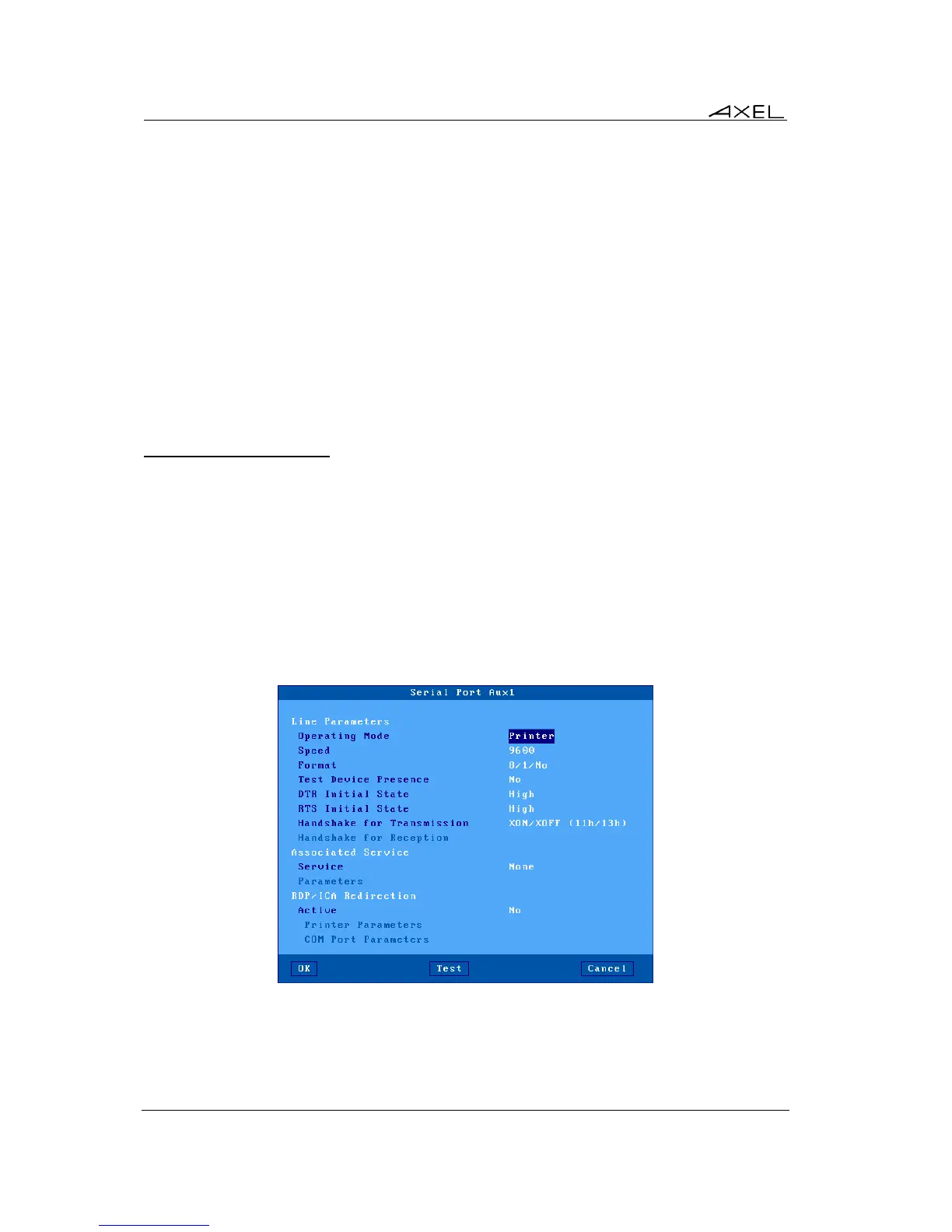Interactive Set-Up
58 AX3000 Models 80 and 85 - User's Manual
3.5 - SETTING AUXILIARY AND LOGICAL PORTS
Three types of ports are available for peripheral devices:
- Auxiliary ports: one parallel port, two native serial ports (Aux1 and Aux2).
- USB logical ports: a USB logical port is automatically created when a USB printer or a
USB-Serial adaptor is connected. Four USB logical ports are available (see Chapters 3.4.6
and 3.4.7)
- Network Printers: a TCP logical port (Net1 to Net4) allows a network printer (or a network
print server) to be addressed in the same way as a local printer.
The AX3000 (auxiliary and logical) ports can be accessed in various ways:
- By a network service (lpd, tty, prt5250, etc). The management of the ports is independent of
the active screen session.
- By an RDP or ICA session (see Chapter 5).
- By escape sequences (transparent mode or embedded printing). This provides compatibility
with applications designed for serial terminals.
3.5.1 - Setting Up the Ports
This chapter covers selecting, setting up and choosing the network service for each port. (Also see
Chapter 3.5.2)
Note: within the dialog boxes the [Test] button verifies communication between the AX3000 port
and the connected device. This test works in all port configurations.
Warning: if ASCII format is not supported by the printer, the banner won't be displayed.
a) Setting Serial Ports
Select the [Configuration]-[Ports]-[Auxiliary Ports]-[AuxX] dialog box to configure each auxiliary
serial port:
These parameters are:
- Operating Mode: three modes are available:
- Printer: data flow takes place one way only (from the AX3000 to the serial peripheral
device). However handshaking between the peripheral and the AX3000 is performed.
